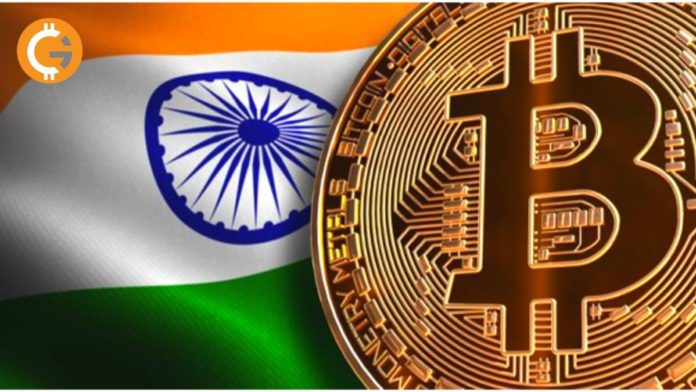For those of us who don’t ardently follow cryptocurrency news or the laws and regulations governing it, here’s an interesting tidbit. The last few weeks have seen an intense legal battle between RBI and the Honorable Supreme Court of India, regarding the validity and dangers of cryptocurrency.
But what is the case actually all about?
Well, very simply, the Internet and Mobile Association of India (IAMAI) had filed a petition against RBI in the Supreme Court, for a 2018 circular that it had released. This circular by RBI prohibited all the entities regular by it, such as banks and financial institutions to use virtual currencies, or provide services to any organization or person who did. The reasoning? Cryptocurrencies could be used for terror financing, money laundering and other illegal activities such as drugs or illegal weapons trading, mainly in the deep web. RBI calls this process “ring-fencing” all the entities under it, to protect them from the operational, reputation and financial risks associate with cryptocurrencies. It argues that since it is the regulator of cross-border transactions, it is choosing to restrict cryptocurrencies for the sake of monetary policy.
However, since most cryptocurrency users use them for normal daily activities such as to top up their mobile phones, or just to trade or invest them, this caused a huge problem. It was also a problem for the banks, since most of their bank-to-bank transfers and loans are done using blockchain technology and cryptocurrencies. Any other way would incur huge costs and time for them.
Hence the petition.
Exchanges business is completely dependant on banking channel. If RBI cuts banking channels it directly cuts our activity.
— Crypto Kanoon (@cryptokanoon) January 22, 2020
A cryptocurrency legal expert, operating under the Twitter Handle Crypto Kanoon, has been keeping us all regularly updated with this case. Reporting live from the hearing of the case, on January 22nd and 23rd, Crypto Kanoon has taken a revolutionary step in the right direction, to make sure that the public gets unbiased news.
Representing IAMAI is Mr. Ashim Sood, while Mr. Shyam Diwan has been chosen by RBI to represent it. While arguments were flying on both sides, one of the most poignant statements made by the petitioners was that, as with all technology, especially new ones, there is a risk of them being misused. However, it is much better to carefully regulate these technologies than ban them altogether, as that will make it harder for law enforcers to monitor what happens in the deep and dark web. The RBI has also been accused of not reading through the financial statements and other relevant documents submitted by the petitioners, which prove why cryptocurrency’s benefits far outweigh its risks.
Counsel is taking example of Air Miles to explain the similarity of Crypto with other Schemes which have been in operation for long.
— Crypto Kanoon (@cryptokanoon) January 22, 2020
Above all, what is happening here is that the petitioners are trying to convince the Supreme Court that cryptocurrencies should not be feared as the unknown. In fact, they are very similar to other token systems, such as loyalty points, which are run by most retail chains and outlets these days. However, it is argued that though these schemes have a lot in common with cryptocurrencies, the RBI has done nothing to limit or stop them.
Must Read: Watch out Bitcoin: 5 altcoins which top Bitcoin in 2020
This is a big step, as India being on the conservative side, has almost always been deeply suspicious of any new kind of technology, especially one it cannot control. And here lies the crux of RBI’s whole issue. For decades it has been the only authority to issue and control and regulate Indian currency, the fiat kind. This means that every single decision regarding money, and the regulations around it, had to first go through the RBI to get approved. Now all of a sudden, it finds itself faced with a kind of currency it can neither issue, nor control, nor regulate, and it seems that the central bank is having a hard time accepting that. This is especially true because the RBI has seldom tried to keep itself updated with new technology.
Now the Counsel is refering to the Petitioner's representation made to RBI. RBI response at one place mentions that "technological innovations like VCs not to be encouraged…". Counsel says that it is not under the domain of RBI to encourage and not to encourage.
— Crypto Kanoon (@cryptokanoon) January 22, 2020
While the hearing is not over yet, and is set to resume on the 27th January, this could turn out to be a landmark judgement for the Indian legal system, if handled properly.
Must Read: 5 Best Electroneum Wallets To Store Your ETN Coins Safely
Remember the earliest Crypto related Petitions filed in the Supreme Court by @RohanDwaipayan & @vpdalmia?
These are coming to be heard on 27th January 2020.
Govt. had procrastinated the hearing saying that Crypto banning bill may be introduced in the next session of Parliament. pic.twitter.com/Nq3bhVs7TQ
— Crypto Kanoon (@cryptokanoon) January 24, 2020
However, the one thing that stands out clear as day is that the Indian system needs to be more flexible and open-minded to new technology, and perhaps take a cue from its American or Australian counterparts. These states have not only accepted cryptocurrency wholeheartedly, recognizing its vast potential, but also set appropriate boundaries, without trying to ban them completely.




… [Trackback]
[…] Find More to that Topic: coingyaan.com/rbi-vs-cryptocurrency-the-battle-continues/ […]
… [Trackback]
[…] Read More Information here on that Topic: coingyaan.com/rbi-vs-cryptocurrency-the-battle-continues/ […]
… [Trackback]
[…] Find More on that Topic: coingyaan.com/rbi-vs-cryptocurrency-the-battle-continues/ […]
… [Trackback]
[…] Information to that Topic: coingyaan.com/rbi-vs-cryptocurrency-the-battle-continues/ […]